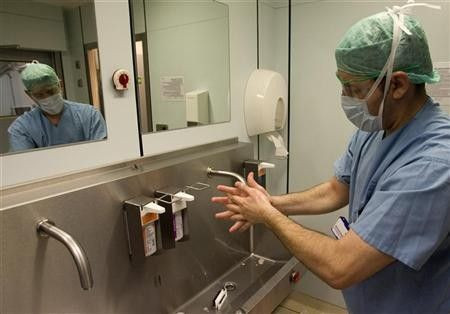Using Hand Dryers in Public Restrooms Could Spread Germs

A recent research at the University of Leeds corroborated past studies that have evaluated the health implications of using modern hand dryers and hand paper towels in public toilets. The study shows an increase in airborne germ count by 27 percent with the use of both jet-aired dryers and warm air dryers. Bacteria also spread into the air and onto hand dryer users.
The scientists used a harmless bacteria in the research. Lactobacillus was placed on the subjects' hands to imitate hands that have not been washed thoroughly. After drying up, the presence of Lactobacillus in the air and around the hand dryers was detected even at a distance of two meters. Bacteria count near the jet dryers were 4.5 times higher compared to that close to warm air dryers. Also, Lactobacillus lingered in the air beyond 15-second hand-drying time and were still there after 15 minutes.
Professor Mark Wilcox, the team leader of the research, explains the relevance of the study in understanding how bacteria and disease are spread without people knowing it. With these results, people can be more aware of hygienic hand washing practices.
The study was published in the Journal of Hospital Infection and discussed at the Healthcare Infection Society (HIS) International Conference in Lyon, France. It is also funded by the trade association, European Tissue Symposium. The research would serve as a basis for creating advisory on the sanitization standards of different hand drying methods.
In the past, related studies were conducted by other researchers and institutes to evaluate these hand-drying systems as well. In 2005, TÜV Produkt und Umwelt found out that using hand dryers increased bacterial count by 117 percent whereas use of paper towels reduced it by 24 percent. Another study at the University of Westminster in 2008 also supported the claim that germ count increased on the palms and finger pads with the use of automated hand dryers.
A jet air dryer manufacturer contested these claims and said that these were deliberately falsified. It also maintains that the company has several hygienic credentials and has commissioned an independent study to disprove these statements made by tissue paper corporations.
Hand hygiene is essential in controlling the spread of communicable diseases. It is also important for consumers to know how washing hands and drying should be done properly, especially in public restrooms. Old and emerging technologies can work together to safeguard public health.





















